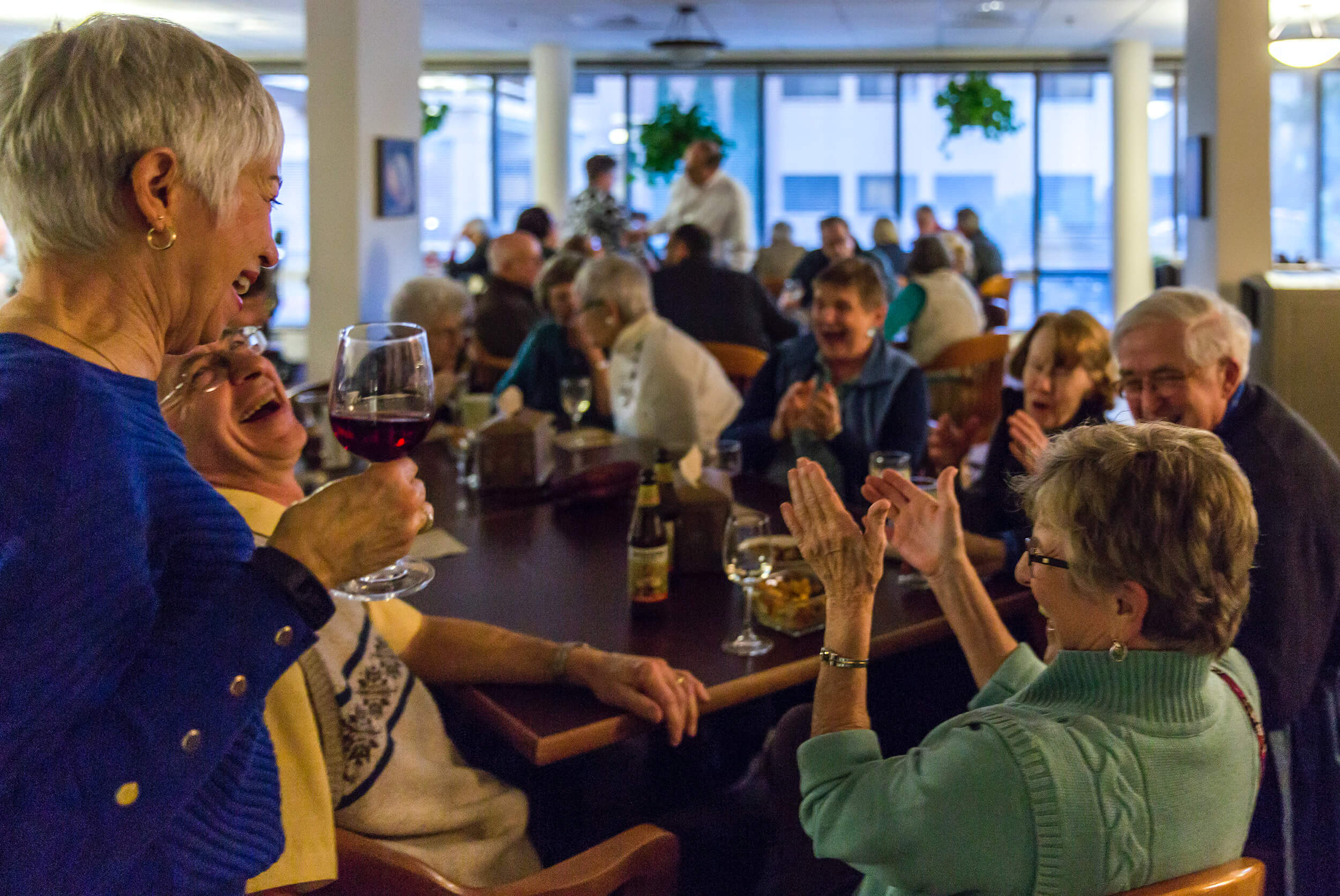Four Ways Senior Living Is Like College – Or Better

Don’t be fooled by the age difference. Colleges and senior living communities have a lot in common.
A culture of sharing meals? Check.
Plenty of group activities for bonding with others over shared interests? Ditto.
A connected campus that makes social isolation unlikely? You bet.
By design, senior living communities like Willamette View, just south of downtown Portland, and residential colleges share features that make it easier for people to build strong social connections. That’s important at any age, as friendships enrich our lives and provide comfort during difficult times. In senior living communities – also called Life Plan Communities or Continuing Care Retirement Communities (CCRCs) – friends can even add years to your life.
Having meaningful social connections can keep you alive longer, according to peer-reviewed research in the journal PLOS Medicine. The 2015 analysis of more than 70 studies showed that the absence of such connections carries the same health risk as smoking 15 cigarettes a day.
Rikki Schoenthal, a clinical social worker and general therapist, worked for 11 years as the counselor at Willamette View before she retired and joined the community as a resident. In both roles, she’s seen firsthand how, at the right senior community, healthy opportunities to connect with others are built into the environment.
Mealtime as bonding time.
Just like at college, the culture at Willamette View encourages eating together in one of several dining venues. Mealtimes are for catching up with friends, meeting new ones, and laughing a lot. Schoenthal says it’s the norm, if you see an open seat, take it, even if you don’t know others at the table – a particular boon to single people without a default dining partner. When people first move to Willamette View, they plan to cook most meals in their kitchens. “Very soon they say, ‘Not going to do it,’ and end up eating with other people every day,” she says.

Peers who share your passions.
One of the best ways to find friends at any age is to get involved in activities you love and connect with others who love them, too. Willamette View residents have created dozens of groups – about books, politics, volunteering, ham radio, you name it – that they run themselves. “Some people were interested in stem cells, and all of a sudden a resident is offering a four-part ‘Stem Cells 101’ series. Residents have started a French language monthly lunch, a documentary films committee, team trivia night, and a pen pal program with local elementary students. All you have to do is dip your toe in and you’ll find people who like doing what you like to do and are eager to immerse themselves in learning,” Schoenthal says.
Less hassle, more time to connect.
It’s easier to make and maintain friendships when the logistics simply disappear. When your friends live down the hall or in the next building over, “we don’t have to put it in the calendar to get together for dinner three weeks from now. I see them at choir practice, I see them on a committee, I see them at dinner,” Schoenthal says. “You don’t have to take years to figure out if you get along with somebody, because you see them all the time.”
Older, wiser – and easier on each other.
For all their friendship-building similarities, Life Plan Communities like Willamette View are different from college in significant ways, Schoenthal says. “I think people are less judgmental as they get older. You’ve been through so much, life is challenging, everybody’s had hard times,” she says. “At this point, we’re all much more comfortable with ourselves, and accepting of each other.”